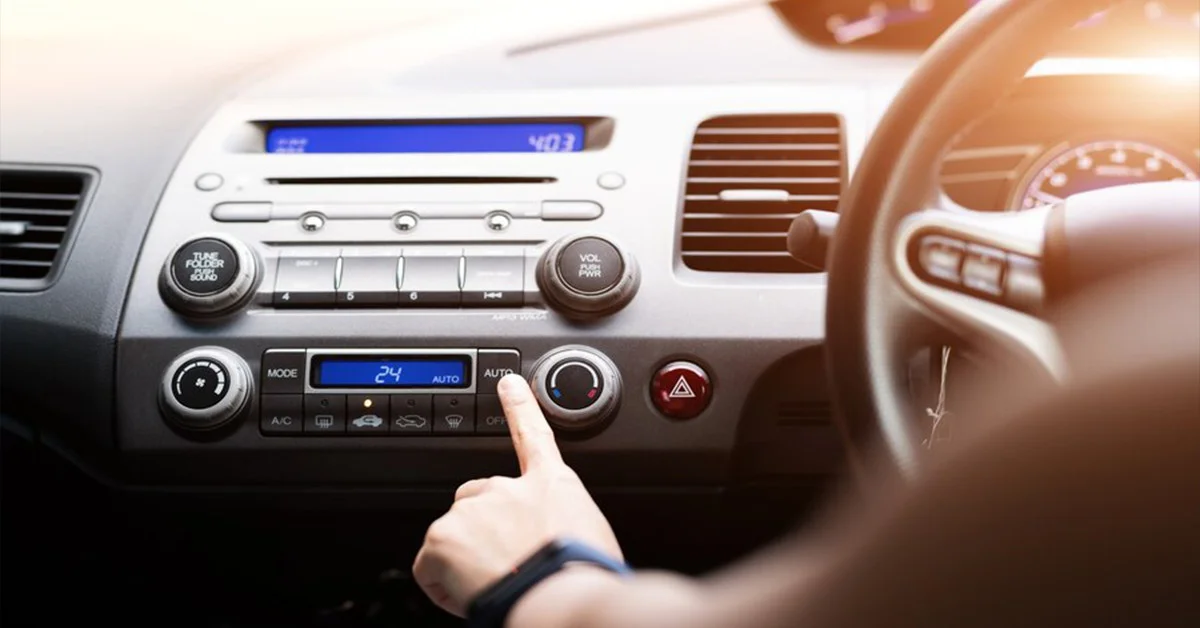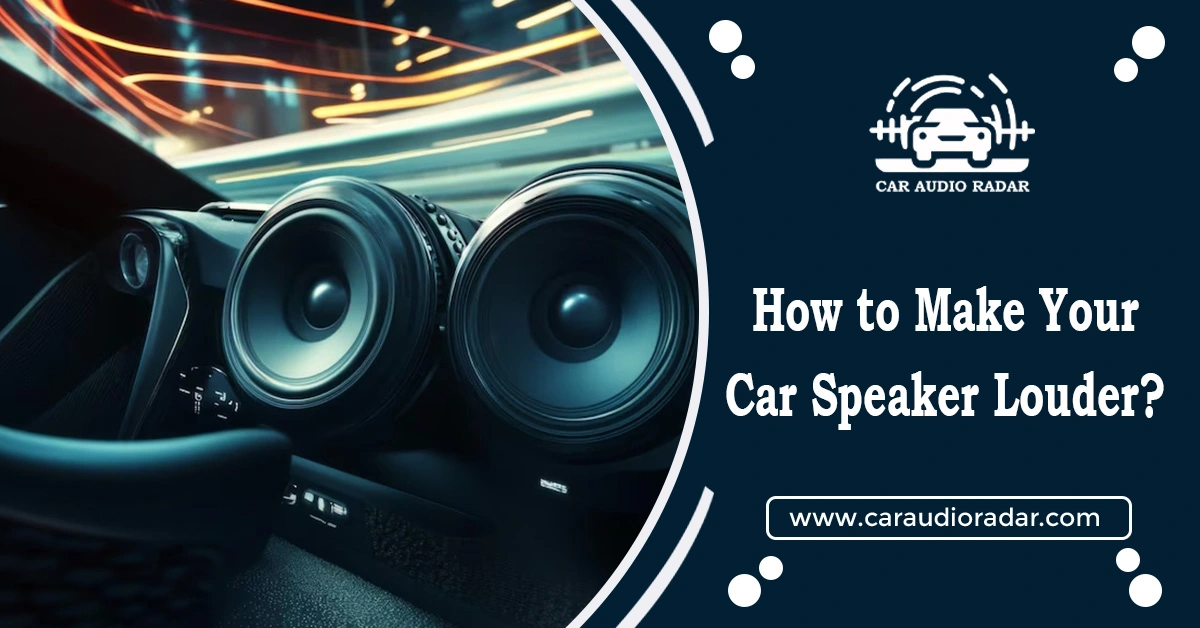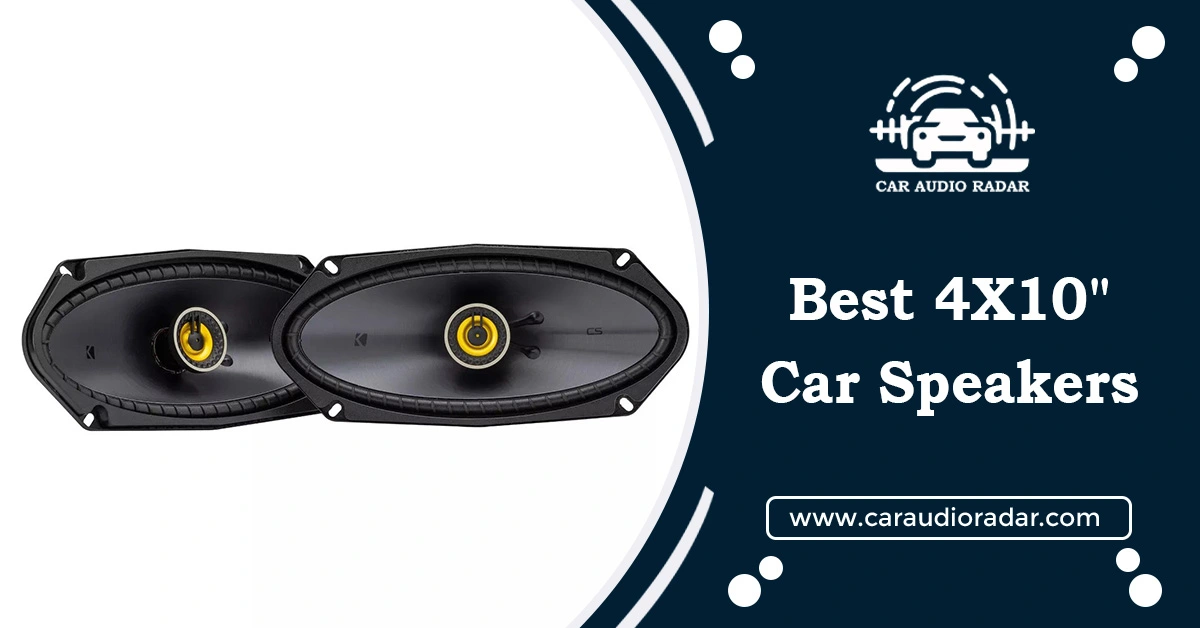
Jump to
How many Watts is good for a car stereo? A Complete Guide

Understanding Watts is good for a car stereo
To ensure speaker compatibility, it’s essential to consider the power handling capabilities of your speakers and match them with the power output of your car stereo. This will help you achieve the best sound quality without damaging your speakers. If you need clarification on the power requirements, consult the specifications provided by the manufacturer or seek advice from a professional car audio installer.
How many Watts is good for a car stereo? It’s most common questions today. Having a good car stereo is essential for enjoying your favourite tunes on the road. One key aspect to consider when choosing a car stereo is Car Stereo Wattage. But how many watts is considered reasonable?
Wattage is a crucial factor to consider when choosing the right car stereo. It directly affects the power and sound quality of your audio system. The wattage of a car stereo determines how loud and clear your music will be and how well it can handle different types of speakers and audio setups.
In simpler terms, wattage is like the engine that drives your car stereo’s performance. In this article, we’ll explore the importance of wattage, how it impacts your listening experience, and guide you in finding the correct wattage for your car stereo needs. So, let’s dive in and discover the world of wattage of your car stereo together!
Understanding Watts is good for a car stereo
When it comes to the wattage of your car stereo, it’s essential to understand the different terms and their significance. Let’s break it down!
Definition and Types
Wattage refers to the power output of your car stereo, measured in watts. It determines how loud and clear your music can be. There are two main types of wattage ratings: peak and RMS.
Watts in Car Audio
In car audio, watts represent the stereo’s electrical power to deliver to the speakers. The higher the wattage, the more energy your stereo can produce, resulting in louder and more dynamic sound.
Peak Power vs. RMS Power
Peak power refers to a car stereo’s maximum power output in short bursts, such as during dynamic musical peaks or sudden sound effects. On the other hand, RMS power stands for Root Mean Square power and represents the continuous power output that the stereo can sustain over an extended period.
Significance of RMS Power
While peak power may seem impressive, RMS power is a more accurate representation of the stereo’s performance. RMS power indicates the sustained power output, providing a better measure of the stereo’s true capabilities and ability to deliver consistent, high-quality sound.
Realistic Performance Assessment
To assess the realistic performance of a car stereo, it’s crucial to consider the RMS power rating. This rating indicates the power output under normal listening conditions, ensuring that the stereo can handle the demands of your music without distortion or damage to the speakers.
Understanding the different terms and their significance will help you decide when choosing a car stereo that meets your specific needs and preferences. So, remember to look for a balance between peak and RMS power to ensure optimal performance and an enjoyable listening experience on the road!
Assessing Power Requirements
When assessing the power requirements for your car stereo, there are a few factors to consider. Let’s take a closer look!
Matching Power to Vehicle
It’s essential to match the power of your car stereo to your vehicle’s electrical system. This ensures the stereo can operate efficiently without putting excessive strain on the system.
Alternator and Battery Capacity
The alternator and battery in your vehicle play a crucial role in supplying power to your car stereo. It’s essential to consider their capacity when determining the power requirements. If your stereo requires a higher wattage, you may need to upgrade your alternator or battery to support it.
Impact on Electrical System
Using a car stereo with high power requirements can strain your vehicle’s electrical system. This can lead to issues like dimming headlights or a drained battery. It’s essential to ensure that your electrical system can handle the power demands of your stereo.
Determining Appropriate Power Range
To determine the appropriate power range for your car stereo, consider your listening preferences and the type of music you enjoy. You may need a stereo with higher wattage if you prefer louder volumes or listen to music with heavy bass.
Considering Speaker Capacity
The capacity of your car’s speakers is another essential factor to consider when assessing power requirements. Different speakers have different power-handling capabilities. Ensure your stereo’s power output matches or is within your speakers’ capacity range to avoid damaging them.
Cabin Size Influence
The size of your car’s cabin can also influence your power requirements. Larger cabins may require higher wattage to ensure the sound is evenly distributed and reaches all passengers. Consider the size of your cabin when determining the appropriate power range for your car stereo.
By considering factors such as your vehicle’s electrical system, speaker capacity, and cabin size, you can assess the power requirements for your car stereo more accurately. This will help you find a stereo that delivers the optimal sound experience for your specific setup.
Wattage and Speaker Compatibility
Regarding wattage and speaker compatibility, finding the right match between your car stereo’s power output and your speakers is essential. Let’s dive into the details!
Matching Stereo Power to Speakers
Matching your car stereo’s power output to your speakers’ capabilities is crucial for optimal performance. If the power output of your stereo is too low, your speakers may not reach their full potential. On the other hand, if the power output is too high, it can damage your speakers.
Risks of Underpowering
Underpowering your speakers means your stereo’s power output is lower than your speakers can handle. This can result in weak or distorted sound. Additionally, underpowering can cause your speakers to work harder, leading to overheating and potential damage over time.
Risks of Overpowering
Overpowering your speakers means your stereo’s power output is higher than your speakers can handle. While more power equals better sound, overpowering can damage your speakers. Excessive power can cause the speaker cones to move too much, distorting or blowing out the speakers.
To ensure speaker compatibility, it’s essential to consider the power handling capabilities of your speakers and match them with the power output of your car stereo. This will help you achieve the best sound quality without damaging your speakers. If you need clarification on the power requirements, consult the specifications provided by the manufacturer or seek advice from a professional car audio installer.
Other Considerations
Regarding car audio, there are a few other essential considerations to remember. Let’s talk about them!
Quality of Components
The quality of your car’s audio components can make a big difference in the overall sound experience. Investing in high-quality speakers, amplifiers, and other audio equipment can produce more precise, more detailed sound reproduction. Look for reputable brands known for their audio expertise to ensure you get the best quality components for your car.
Additional Features and Power Needs
In addition to power considerations, any additional features you may want in your car audio system are worth considering. For example, if you’re a fan of deep bass, consider adding a subwoofer to your setup. This can enhance the low-frequency sound and give your music that extra punch.
Subwoofers
Subwoofers are specialised speakers that reproduce low-frequency sounds, such as deep bass. They can significantly enhance the audio experience, especially if you enjoy genres like hip-hop or electronic music. When choosing a subwoofer, ensure it’s compatible with your car’s power output and adequately installed for optimal performance.
Amplifiers
Amplifiers play a crucial role in boosting the power of your car stereo’s audio signal. They provide the power to drive your speakers and ensure they perform at their best. Amplifiers come in various sizes and power ratings, so choosing one that matches your speakers’ power requirements and provides the desired sound quality is essential.
You can create a well-rounded and robust car audio setup by considering the quality of components, additional features like subwoofers, and your system’s power needs with amplifiers. Remember to do your research, consult experts if needed, and enjoy the immersive sound experience on the road!
Balancing Budget and Performance
Finding the right balance between budget and performance is critical for car audio. Let’s explore some cost-effective options and the trade-offs between wattage and price!
Cost-Effective Options
If you’re looking to save some money while still getting good performance, there are a few cost-effective options to consider. One option is to prioritize the quality of your speakers. Investing in high-quality speakers can make a noticeable difference in sound quality, even if you opt for a more budget-friendly amplifier.
Another cost-effective option is to consider purchasing a pre-packaged car audio system. These systems often have all the necessary components, including speakers, amplifiers, and sometimes subwoofers. They are designed to work together, ensuring compatibility and saving you the hassle of selecting individual components.
Wattage vs. Price Trade-Offs
There is often a trade-off between wattage and price when it comes to amplifiers. Higher-wattage amplifiers are more expensive but can provide more power and better sound quality. However, it’s important to note that the wattage alone doesn’t guarantee better sound. The overall quality of the amplifier, as well as its compatibility with your speakers, also plays a significant role.
If you’re on a tighter budget, you can still find amplifiers with lower wattage that offer decent performance. The key is to choose an amplifier that matches the power requirements of your speakers and provides enough power to drive them effectively. It’s also worth considering the amplifier’s efficiency, as more efficient models can deliver better performance with lower wattage.
You can create a car audio system that meets your needs without breaking the bank by carefully considering your options and finding the right balance between budget and performance. Remember, it’s not just about the wattage but also the overall quality and compatibility of the components. Happy car audio shopping!
Practical Tips for Wattage Selection
When selecting the correct wattage for your car audio system, remember a few practical tips. Let’s explore some valuable strategies!
Consulting Manuals
One of the first steps in wattage selection is to consult the manuals of your car stereo and speakers. These manuals often recommend the ideal wattage range that will work best with your specific components. Following these guidelines can help ensure optimal performance and prevent any potential damage.
Stereo and Speaker Guidelines
Both your car stereo and speakers will have their wattage specifications. It’s essential to pay attention to these guidelines when selecting an amplifier. The amplifier’s wattage output should match or fall within the recommended range of your stereo and speakers. This will help ensure that the components work together harmoniously and produce the desired sound quality without strain.
Seeking Professional Advice
If you need clarification on the wattage selection or have specific requirements, it can be helpful to seek professional advice. Car audio specialists or technicians can provide personalized recommendations based on your needs and budget. They have the expertise to guide you in choosing the correct wattage for your system, considering factors such as your car’s electrical system and the type of music you enjoy.
System Testing Before Finalizing
Before finalizing your wattage selection, testing your car’s audio system is a good idea. Connect the amplifier to your stereo and speakers, and listen to various music genres at different volume levels. This will give you a better understanding of how the system performs and if any adjustments are needed.
You can decide about wattage selection by consulting manuals, following stereo and speaker guidelines, seeking professional advice, and testing your system. Remember, it’s all about finding the right balance that suits your preferences and ensures optimal performance. Enjoy the process of fine-tuning your car audio system!
Conclusion
In conclusion, the Car Stereo Wattage plays a significant role in determining its performance and sound quality. While there isn’t a one-size-fits-all answer, a good rule of thumb is to aim for a car stereo with a wattage that matches your specific needs and preferences. Whether you’re a casual listener or a true audiophile, finding the right balance of power and sound quality will enhance your driving experience.
Hopefully you figure out How many Watts is good for a car stereo? So, rock out to your favourite tunes with a car stereo that suits your wattage requirements!
Frequently asked Questions (FAQs)
A suitable wattage for a stereo system depends on your preferences and the size of your space. Generally, 50-100 watts per channel range should provide clear and loud sound without straining the components.
A good watt speaker for a car depends on the power output of your car stereo system. Choosing speakers with a power handling capacity that matches or slightly exceeds the maximum wattage output of your stereo is recommended. This helps ensure optimal performance without distortion or damage.
Having a car speaker with a power handling capacity of 100 watts can be good, especially if it matches or slightly exceeds the power output of your car stereo system. Check the specifications and ensure the speaker can handle the wattage without issues.
Yes, more than 50 watts per channel can be enough for a car speaker, especially if you’re not aiming for extremely high volume levels. Additionally, consider the sensitivity of the speakers, as higher sensitivity can produce louder sounds with less power. It’s always a good idea to consult the manuals and test your system to ensure the best wattage selection for your car stereo and speakers.
Cooper Katzeel
Car Enthusiast
Cooper Katzel, a dedicated car enthusiast, delves into the world of automobiles and audio systems. With a deep interest in cars and a focus on superior sound, Cooper’s expertise traverses the spectrum. His journey is a delightful exploration of automotive wonders and the world of car speakers. Cooper’s passion and technical know-how make him a trusted advisor for car enthusiasts.
Follow On Instagram
Recent Posts
- All Post
- Blog
- Car Speaker
- Car Subwoofer
- Pro Tips & Guides
- Back
- Speaker Wire



Dream Life in Paris
Questions explained agreeable preferred strangers too him her son. Set put shyness offices his females him distant.


